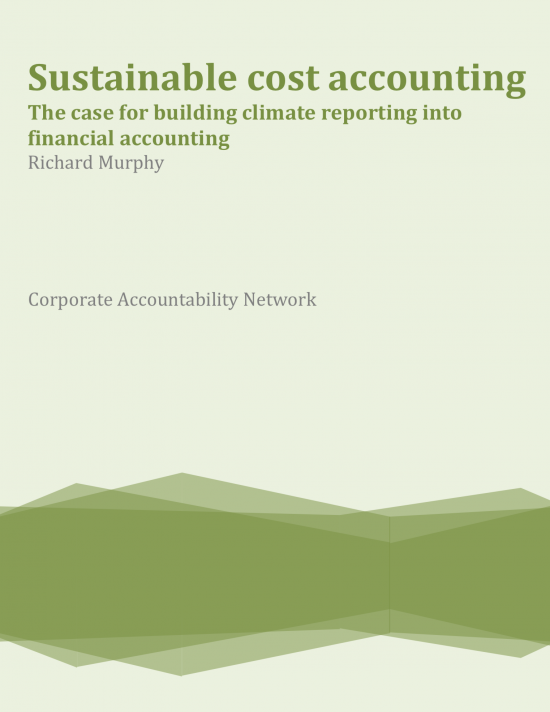Sustainable cost accounting is the idea that I am promoting through the Corporate Accountability Network. The aim is to do what no one has yet achieved, which is to bring the impact of climate change onto corporate balance sheets. The latest guide to sustainable cost accounting is now out, incorporating feedback from recent meetings at which the issue has been discussed. You can download the guide here.
Thanks for reading this post.
You can share this post on social media of your choice by clicking these icons:
You can subscribe to this blog's daily email here.
And if you would like to support this blog you can, here:




There’s a presumption that being CO2 neutral is the desired outcome, but no evidence put forward to support this claim. There is no mention of a CO2 tax to deal with the issue of balancing benefits with costs. And there is no mention of making the CO2 tax assymetric to incentivise developing countries to restrain their emissions.
This is good work if you dislike market economies being given carrots to deliver things they do well.
But it’s a disappointing piece of work if you’ve studied the 20th century from a non-European perspective and believe otherwise I’m afraid.
John
Thanks for the comments, which I admit are a little too cryptic to be really useful, but I’ll try.
First, I am accepting climate science: it sets the goal. It is widely accepted.
Second, I am not saying there should be no carbon taxes: more than one solution is required here.
Third, by embracing country-by-country reporting this is explicitly accepting an issue for developing countries: I have very definitely considered them.
In that case I am not sure that the imperialist critique you are using is right in this case
What I am seeking to do, in fact, is correct for that imperialist view that still thinks emissions can be exported
Richard